Washington Water Main, March 1: Different Futures in World Energy Systems; Change at Top of U.S. Interior Department
Shell Oil Co. released a study projecting alternative paths for global energy development, and Sally Jewell faces political opposition to her nomination as Secretary of the Interior.
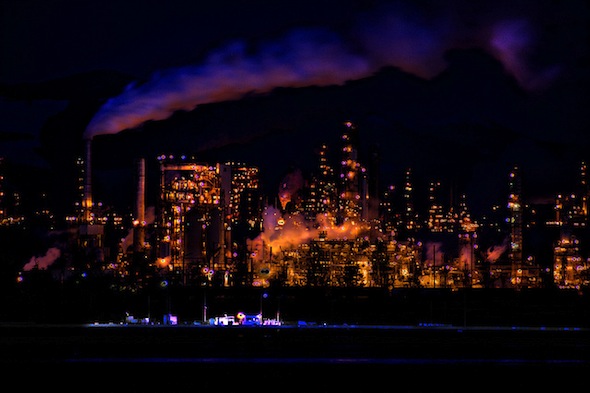
Shell Oil Co. this week offered two scenarios for supplying the world’s energy in the next 100 years. In the first, natural gas supplants oil as the dominant energy source, supported by carbon capture and sequestration and other technological developments.
In the second, solar overtakes liquid fuels and coal to become the leading energy source by 2070.
Both projections are the core of Shell’s New Lens Scenarios report, the company’s attempt to guide decision making by anticipating how global energy systems will change by 2100.
If either scenario proves accurate — a big “if” given the fast-changing trends of the world’s energy sector — Shell’s palm readers see net-zero emissions in energy production in the next century. The supply-demand gap will likely be closed primarily through cleaner fossil fuels, supported by renewables and other major improvements in efficiency and emissions control technology, like carbon capture and sequestration (CCS).
But the study also promises intense stress on the world’s water resources, since energy from natural gas, liquid fuels, and CCS — the primary energy-supply boosters in Shell’s scenarios — require a lot of water.
Indeed, projections for the future, at least for energy and water, have come a long way since the sixteenth-century prophesies of Nostradamus. He drew on astronomy, the Bible, and classical histories to promise global disasters, complete with frogs falling from the sky.
Looking into the future is now called “scenario planning,” and its practitioners have degrees from Oxford University, MIT, and CalTech.
“The work is really not about predicting the future — that’s a foolish thing to do — but looking at dynamics shaping the future,” said Jeremy Bentham, head of Shell’s scenarios team, who made the projections Thursday at a high-level panel in Washington, D.C., that included Shell chief executive officer Peter Voser.
Shell’s study is the latest, largest attempt to get ahead of an era of massive change. Bentham used the terms “volatility” and “transition” to capture trends familiar to people from Capitol Hill to Davos’ World Economic Forum. By 2050, the world’s population will grow to 9 billion – 1 million of those people moving to a city every week. That growth also will escalate the confrontation over water between agriculture and energy producers, the two largest water consumers on the planet.
Energy development in the U.S. already illustrates how dependent fossil-fuel production is on water, and how quickly the energy supply and demand landscapes are changing.
Energy extracted from Canada’s oil sands, oil shales of the northern Great Plains, and shale gas from the Northeast U.S. to Texas will require three to four times more water than producing energy from conventional oil and gas reserves. Development in North Dakota’s Bakken Shale is approaching 1 million barrels of oil daily, but some farmers and rural residents are protesting, feeling the pinch as water use exceeds 15 million gallons daily.
And while CCS technology, if it’s ever deployed commercially, could cut carbon emissions at coal-fired plants, carbon capture and storage technology uses 40 percent to 90 percent more water than plants without the emissions control equipment. Reason: CCS reduces generating efficiency and capacity, so bigger power plants that use more water are needed to make up the difference.
These water stresses on the supply side fall against a backdrop of an energy sector already in dynamic transition. Since 2008, the Energy Information Administration has revised its predicted demand for coal-fired electricity in the U.S. from more than 50 percent of generating capacity by 2040, down to less than 40 percent. Last year, wind power was the largest source of new generating capacity in the U.S., and solar power generation expanded by 70 percent in the U.S. alone.
Bentham said Shell’s scenarios tried to capture that complexity and uncertainty, and anticipate the positive and negative consequences in each energy future.
“The world is going to be messy, and patchy, and complicated,” Bentham said. “There are no easy, simple stories to tell here.”
Studies like the New Lens Scenarios, he added, are supposed to help leaders make decisions that minimize the chances of the negative possibilities in each scenario becoming realities.
Read the full report here.
Showdown of the Interior Looms
Sally Jewell, President Barack Obama’s nominee to become the next Secretary of the Interior, will face her Senate confirmation hearing next week — and a major showdown is expected.
President Obama nominated Jewell to replace Ken Salazar when he leaves at the end of March. Jewell, currently the chief executive of Recreational Equipment Inc., has a diverse background as a conservationist, former banker and petroleum engineer who happens to be an avid mountain climber and skier, The Seattle Times reported.
Leading the charge against Jewell is Senator Lisa Murkowski (R-Alaska), the ranking Republican on the Senate Energy and Natural Resources Committee, which will host the hearing. Murkowski said she will block the nomination process until the Interior Department allows a 10-mile road connecting a small village to an airport to be built through a wildlife reserve, ABC News reported.
However the politics shake out, the next Interior Secretary will control a department with major influence over the country’s water management. Interior supervises $US 1 billion in U.S. water-infrastructure development, climate change response strategies, water conservation initiatives, state-level projects in the Grand Canyon, California, and more. The United States Geological Survey, a bureau in the Interior Department, maintains some of the largest water-related databases in the country.
Jewell’s hearing will be March 7. Check back in with Washington Water Main for analysis from the hearing and the end result.
Sources: ABC News, The Seattle Times, Shell Oil Co.
is a Washington, D.C–based correspondent for Circle of Blue. He graduated from DePauw University as a Media Fellow with a B.A. in Conflict Studies. He co-writes The Stream, a daily summary of global water news.

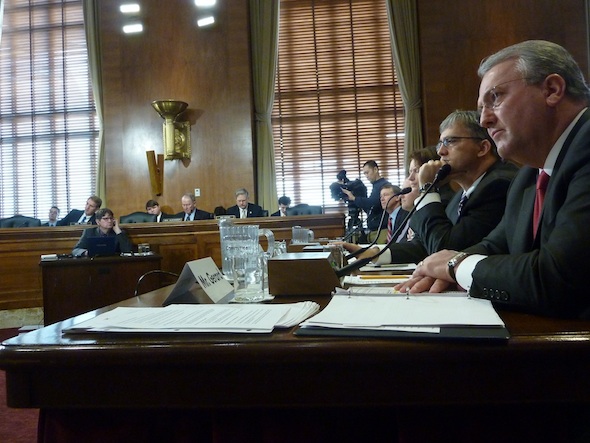
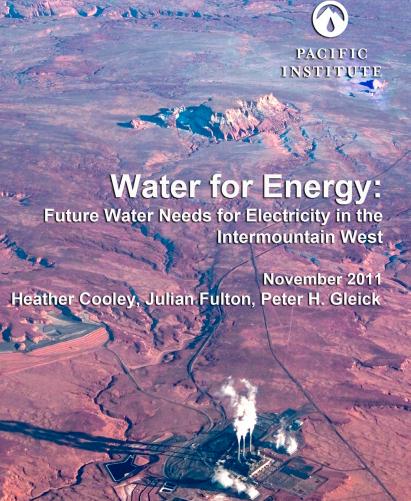
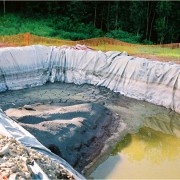


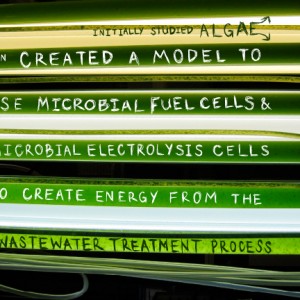
Leave a Reply
Want to join the discussion?Feel free to contribute!